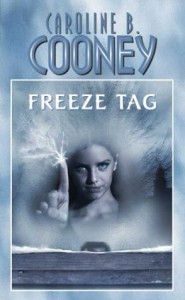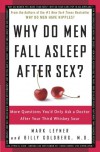

Imagine if the Harry Potter series had been different. Imagine that the main character had been Ginny Weasley. She's Harry Potter's Victorious Childhood Friend, and she's friends with--though slightly jealous of--the "Golden Trio" of Harry, Hermione, and Ron. Then imagine that Voldemort, the unlovable, unloving monster whom they feared in their childhood, suddenly swooped in to break up Harry and Ginny's perfect romance. But imagine that Voldy wants Harry as a follower, not a corpse; so Harry must play along in order to protect Ginny, Hermione, and Ron.
That's not too bad, right? Might even be a good premise for a fanfic.
Now imagine that Ginny spends the whole book insisting that to kill Voldemort would be to sink to his level. Imagine that this insistence that her own moral compass is "good"--and that killing Voldemort would be "evil"--leads her to purposefully foil Harry, Hermione, and Ron's sureproof plan to kill Voldemort once and for all.
That, essentially, is the plot of Freeze Tag, and I can't be the only one who's not amused.
With Caroline B. Cooney's Freeze Tag, I believe I've put my finger on the single most disappointing Point Horror novel. It's clearly supposed to be this moral tale of love versus coldheartedness and good versus evil that ends with a scene of pure, selfless heroism that supposed to warm your heart... but really, it's just a story of four teens living next door to an Eldritch Abomination disguised as a teenage girl who spend the entire book trying to find a way out of their abysmal situation, only to have the main character betray the other three in the final scene. I just can't, man.
The story's four heroes are Meghan, the main character; West, her neighbor and later boyfriend; Tuesday, West's younger sister and Meghan's (apparently) closest girlfriend; and Brown, West and Tuesday's preteen brother. Their antagonist is Lannie, a pathetic excuse for a teenage girl. Allow me to share a short passage that sheds a lot of light on Lannie's character.
"Do you think Lannie is capable of love?" [...]
"No. [...] She never had any. I've never seen a child so thoroughly abandoned. Why, even when her mother was alive, I never saw anybody pick Lannie up, or kiss her, or hug her. She put herself to bed, nobody ever tucked her in. she ate alone, nobody ever shared a meal with her. [...] It's enough to freeze your heart."
The more I read about Lannie, the stronger the Voldemort vibes I got from her. (I'll take this opportunity to quickly say that Freeze Tag was published years before the Harry Potter series began, JSYK.) She was essentially abandoned by her parents, as Voldemort was abandoned by his father before he was born and left at an orphanage when his mother died. Lannie is considered incapable of love because she was never shown any, which rings true for Voldy as well. Lannie is a dangerous predator in a world of Muggles, and, like young Tom Riddle, is perfectly content to terrorize her peers (and defenseless animals) for her own amusement and personal gain. And both are pale, cold, creepy, and surprisingly "strong" in spite of their apparent frailty (Voldy's a senior citizen, FFS).
So, of course, that gave birth to the Harry Potter comparison above. I simply couldn't help myself.
And yet it works. Both are tales of good versus evil with strong themes of love and the lack of it, and by contrasting the two, it quickly becomes clear what so frustrated me about Freeze Tag.
All throughout the novel, that's a big theme: frustration. I don't think it was supposed to be; I think Cooney was actually aiming for a sense of helplessness, but... Yeah, I don't really do helplessness in books. In fact, I read to get away from exactly those kinds of feelings; so when I have to read about them, I start getting pretty pissed off pretty fast. So whereas Harry, Ron, and Hermione are determined to stop their Dark Lord and sink only briefly into despondency, Meghan, West, and Tuesday (Brown is rather absent until the end) are so hopelessly overpowered that they're almost nonchalant about their situation after a certain point. I spent much of the novel wondering why they didn't just, you know, shoot Lannie.
And then, of course, I got to the point at which Meghan decided to announce that doing what I'd be screaming at her to do for most of the book was so far outside of her morality that she considered it evil.
Can we dwell on that for a second? I mean, really. Meghan is insistent that Lannie is someone who deserves to be pitied, and, frankly, she's right. But it's the same kind of pity that Voldemort deserves; sure, they're terrible people because they were never shown any affection as children and are incredibly lonely human beings, but they also spend their screentime and backstories murdering and torturing people. So why exactly would killing Lannie be an "evil" act? Given that Lannie threatened to permanently freeze both Meghan and Tuesday (and, should her relationship with West be allowed to continue, will likely eventually rape him), it would be self-defense. That's "evil" now?
Seriously, Megs. This isn't you going to school and shooting the girl who made fun of your hair. You're dealing with a seriously unhinged, frighteningly dangerous teenager who never seems to age and clearly not a Muggle. You said yourself that she barely even registers as human. You can go ahead and help your friends kill her.
But no. Not darling, righteous Meghan. When she realizes in the final chapter that the Trevor siblings have arranged Lannie's death, what does she do? She goes to save her. She goes to save the girl who's been threatening to kill her for the entire book--and who turned her into a living statue three times already... And then the book's over.
It's clearly written to imply that this single act of heroism is going to fundamentally change Lannie to such a degree that she gives up her "evil" ways. Except, uh... How? Even if the rescue endears Meghan to her, am I supposed to believe that Lannie is going to suddenly abandon her personality--her vengeful, hateful, spiteful personality--to, what, be their best friend? Live happily ever after with the Trevors? The three kids that tried to murder her? Somehow I feel like Lannie and the Trevors are going to have a bit of a disagreement over exactly how justified their attempt on her life was.
So, really, I kind of hated this book. Rereading it, I found it somewhat easier to stomach than I did the first time around, but it remains quite terrible. Lannie's nature is never explained, justified, or even properly explored. The characters are annoying and frustrating; Meghan is sanctimonious, West is weak-willed, and everyone involved in raising Lannie is so incompetent as to seem almost parodic. Most importantly, the plot sacrifices real resolution for a shallow, one-dimensional "triumph" of compassion over cruelty.
Frankly, this was just a disappointing experience all around (and I read this thing twice), and if you're going to read something from the Point Horror line-up, I really suggest picking something else.

 4
4



















